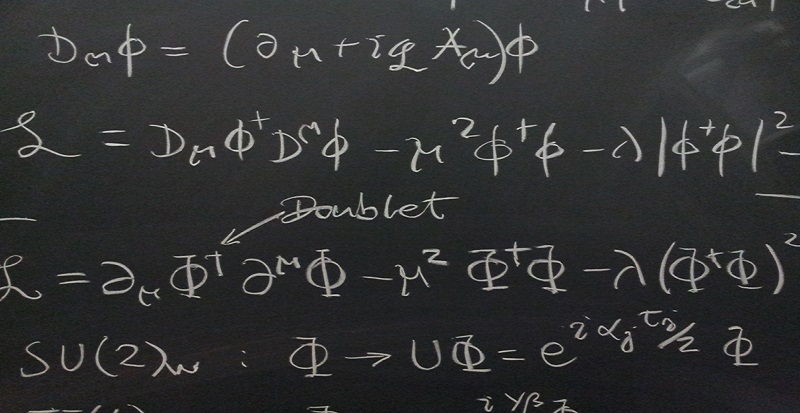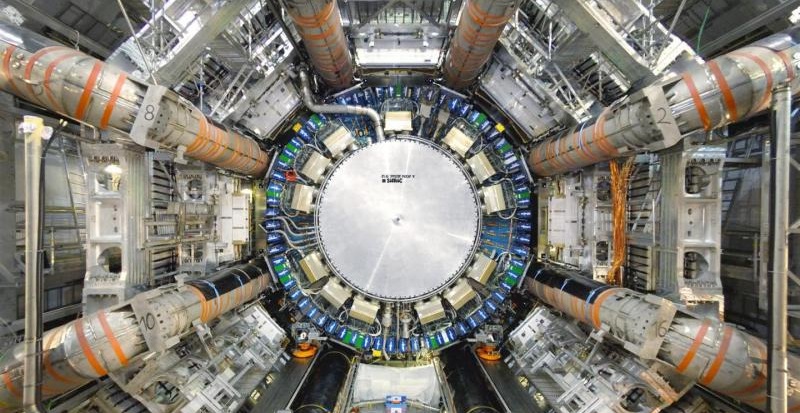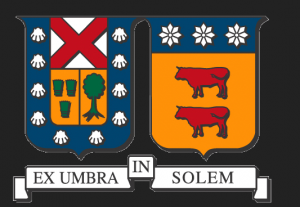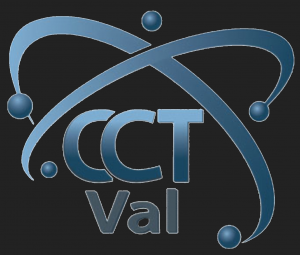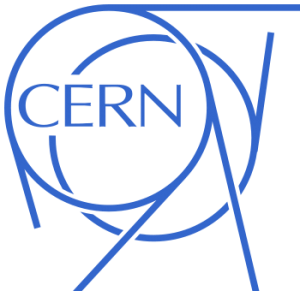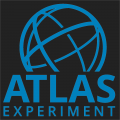Project Description
Research background and activities
- After the recent land marking discovery of the long awaited Higgs boson, with the mass of about 126 GeV, detailed studies of its nature and basic properties will be the major challenge for the forthcoming LHC program. The LHC is also able to probe possible new physics beyond the Standard Model, in particular, by precision measurements of the Higgs couplings to the gauge bosons and fermions, studies of Higgs rare decays such as H → μμ, and Higgs self-‐coupling etc., searches for production of heavy exotic particles, etc. Most of these subjects lie within the expertise and permanent interests of the theory group involved in the proposed project.
- The LHC, which accelerates protons and heavy nuclei (lead), also serves as a laboratory for studies of QCD and and properties of the dense and hot matter (quark-‐gluon plasma) created in heavy ion collisions. Although QCD has been approved as a correct theory of strong interactions, by giving to its founders a Nobel Price 10 years ago, the theory is not complete. New studies are required, and the LHC offers a unique opportunities for that.
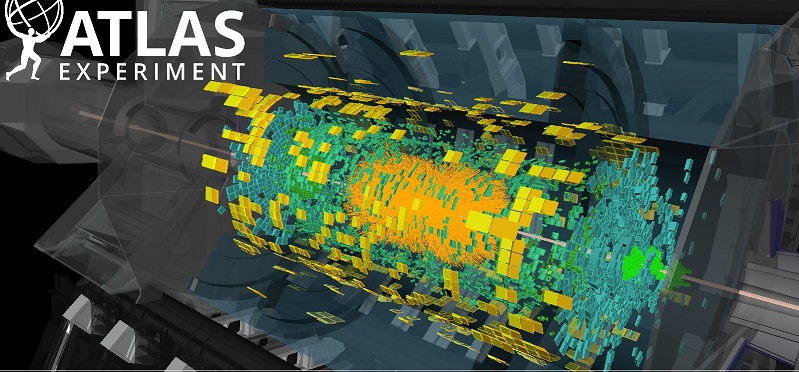
Particle tracks from a heavy ion collision in the ATLAS experiment at the LHC
- To reach these goals the LHC is currently under a reconstruction in order to reach the planned collision energy, 14 TeV for protons and 5.5 TeV for heavy ions (per nucleon), as well as a significantly increase of its luminosity, enhancing the discovery potential of the LHC detectors. The largest of them is ATLAS.
- To cope with higher collision rates and radiation background ATLAS also needs a significant upgrade. One of our main goals is to support our participation both in the upgrade of the ATLAS (muon system) and in the theoretical investigations, with an emphasis on an enhanced collaboration between these two groups of researchers.
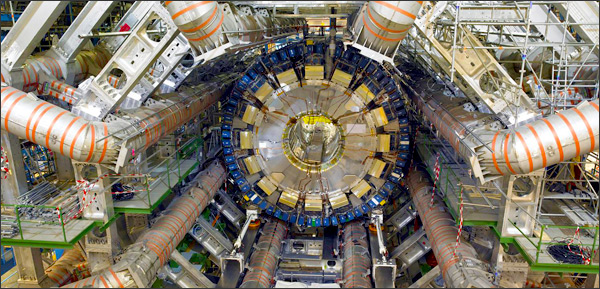
ATLAS Particle Detector, CERN.
- Given the success of our existing close collaboration between physics, computer science, and electronics departments at our university and within CCTVal, we intend to considerably reinforce the existing collaboration between the participants of this project. Two types of collaborative dynamics are foreseen:
- First, the collaboration between experimentalists and theorists is crucial for guiding the activities of both of these groups to focus on high‐impact measurements, and to make meaningful calculations that can ultimately be compared to data. This level of collaboration, which is frequently absent in institutions worldwide, is particularly emphasized here.
- Secondly, the participation in a large experimental collaboration like ATLAS can only be successful if experimentalists and their students work closely together, combining the advantages of diverse backgrounds. This collaborative, well-supported context will also provide a strong and positive foundation for the research activities in future decades at our university and in Chile.
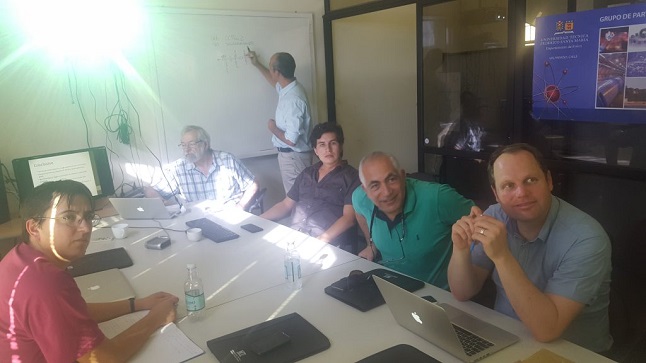
Meeting between members of the ATLAS Upgrade Collaboration
- The analysis of current and future data collected by the ATLAS experiment with guidance from the theoretical research group plays the central role of this project. The development of detector and software technologies are critical in the training of students and the long term physics goals of the young scientists who will work in this project. The training and education of students who will participate in these areas will primarily focus on doctoral‐level research related to the LHC. In particular, this project aims to support experimental research with the ATLAS collaboration, which will be unique in Chile.
Objectives
This project’s research program in fundamental particle physics will be successful by meeting several goals:
- Develop outreach programs and workshops designed to attract students to participate in the project.
- Several members of this project have already successfully held outreach seminars aimed at attracting young students to particle physics at the University. The seminars have been organized as a series of short introductory talks on the subject of particle physics research with the LHC, from the researchers and students established in the particle physics group. These seminars will be held biannually.
- The introductory seminars will be followed by a series of hands‐on workshops, which will introduce students to particle physics research. The aim is to design tutorials in which students can learn how to use common tools available in HEP and ATLAS, such as Event Generators (PYTHIA, MADGRAPH, etc.), data analysis tools (ROOT, RooFit), and analysis or theoretical tools developed by the ARs.
- Identify and develop new lines of inquiry that can be investigated both theoretically and experimentally with future and existing data collected with the ATLAS detector.
- One such example is a joint research effort with USM and U. Valencia to develop a research program to study LHC signatures of lepton number violating (LNV) decays. Experimentalists and theorists are working together to produce and analyze simulated samples of various signatures of LNV processes that may be accessible at the LHC. The aim is to develop an analysis of LHC data that will be collected by the ATLAS detector during the upcoming LHC run.
- Identify student projects for training in software development, hardware development, theoretical tools, experimental analysis tools, and statistical data analysis.
- CCTVAL has been successful with integrating students into the detector laboratory. A recent success of the lab was the testing of MPPC modules for use in the GlueX experiment, which involved many students. In our ATLAS group, we have successfully trained students to work in the ATLAS distributed computing group. Former student, Miguel Ignacio Arratia Muñoz, was awarded ATLAS authorship for his work on the luminosity measurement of the p-‐Pb collision data in 2013. Current student, Javier Salazar Loyola, is implementing a multivariate calibration for electrons and photons in the ATLAS High Level Trigger (HLT). Projects such as these introduce students to the technical aspects of particle physics. this training is critical for the students if they want to be successful in doctoral research with the ATLAS experiment.
- The long‐term goal of this project is the successful integration of theoretical and experimental research related to LHC physics. The project aims to develop new lines of inquiry carried out by theorists and experimentalists working together. The research endeavors of this project will be supported by activities in hardware and software development for applications in high‐energy particles physics to further the presence of Chilean activities at the LHC.
This project will support particle physics research in different areas:
Theory and phenomenology in high energy physics at LHC.
Particle Detector Technologies. ATLAS muon system upgrade.

